News - Oct 17, 2022 Study Tour Motivates Delegates to Design and Implement Sustainable Financing for Waste Management Systems
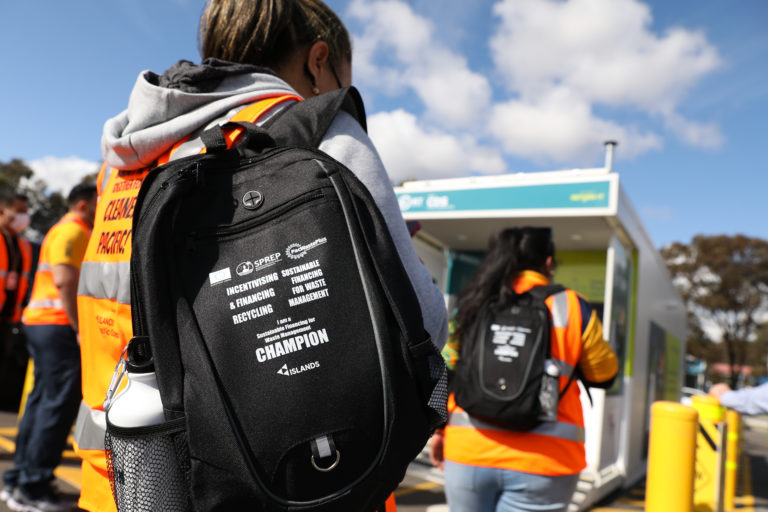
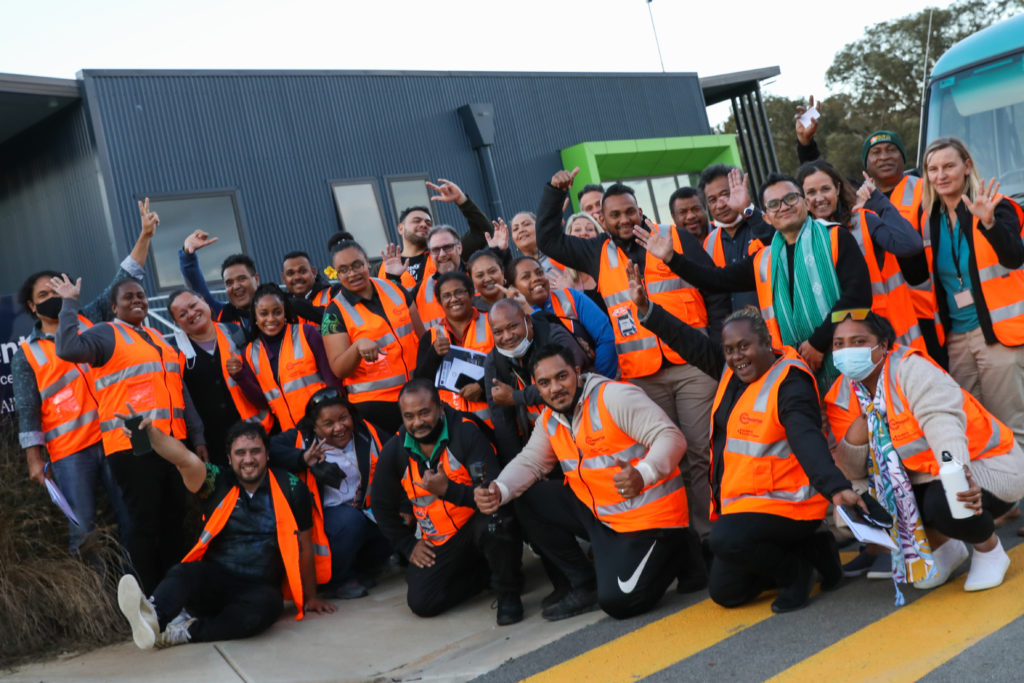
It was an intensive yet rewarding two-week-long, study tour on Sustainable Financing for Waste Management where, over 12 days, the programme team managed to participate in the ENVIRO 2022 Circular Economy Conference and undertake 14 valuable and inspiring waste management site visits.
It did not stop there though with participants engaging with 55 legislators, industry professionals, or operators to share ideas and learn through intensive workshops and Talanoa sessions. Not to mention the peer-to-peer learning undertaken through the tour, completing a Workbook-based exercise working through options for system design in their own country and all the bus, train, ferry, and plane ride to get around a small area of the Australian mainland.
The interactive Study Tour to Australia from 29 August-9 September 2022 was a partnership between the European Union-funded Pacific Waste Management (PacWastePlus), with the UNEP GEF ISLANDS project in the Pacific, implemented by the Secretariat of the Pacific Regional Environment Programme (SPREP).
Delegates from 12 Pacific Island countries, as well as Timor-Leste and Trinidad and Tobago, joined the study tour, which provided them with a comprehensive “hands-on” experience and understanding of sustainable financing for waste management systems in operation in Australia.
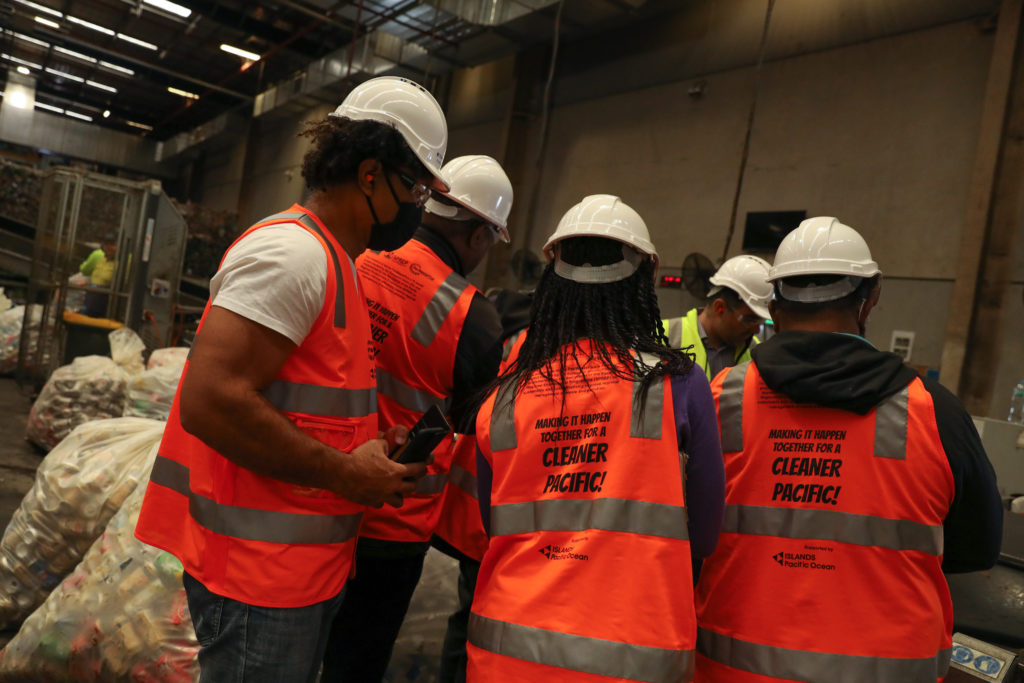
The knowledge gained by the participants from the tour will assist them to apply similar processes and techniques when designing or expanding waste management systems in their own countries and reaffirms SPREP’s commitment to continue providing meaningful assistance to member countries, supporting the implementation of the Cleaner Pacific 2025 Strategy.
Country delegates nominated to attend the study tour expressed appreciation for the PacWastePlus programme and ISLANDS team for organising and enabling their participation in this learning opportunity, especially at a time when many Pacific Island countries are looking at designing sustainable waste management systems.
Delegates are energised and motivated to deliver on this work, and all found the study tour meaningful and genuinely appreciated the time and efforts that the many organisations and individuals set aside from hectic work schedules to help them better understand challenges and solutions for planning and designing their respective schemes.
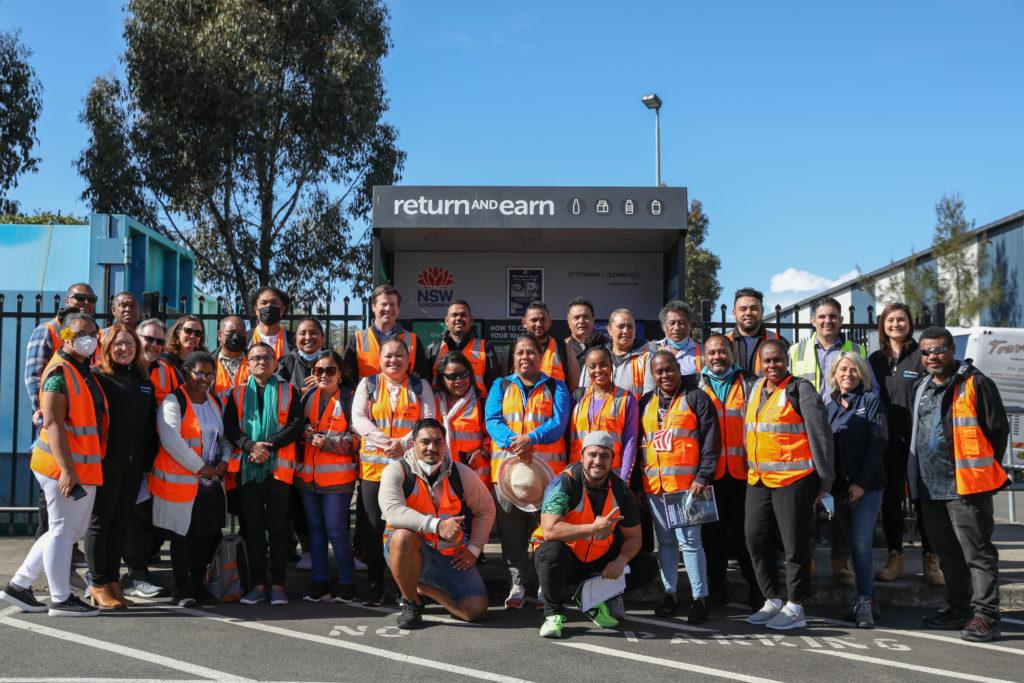
Several delegates made commitments to champion the implementation of sustainable financing schemes when they returned home, with the programme team providing assistance to encourage participants to practically apply the knowledge gained and more importantly, to share that with their country colleagues to assist in the design of sustainable waste management systems.
All participants took the time at the final workshop session of the tour to thank the organisers and presenters for their efforts to provide this valuable experience to them. The majority committed to working with colleagues back in their home countries to effect change.
The study tour has now affected a chain reaction amongst programme countries championed by participating tour delegates with Papua New Guinea expressing that the tour was a ‘game-changer’ for them, and they now have a path to follow to effect behaviour change and system change for their 8.9 million population.
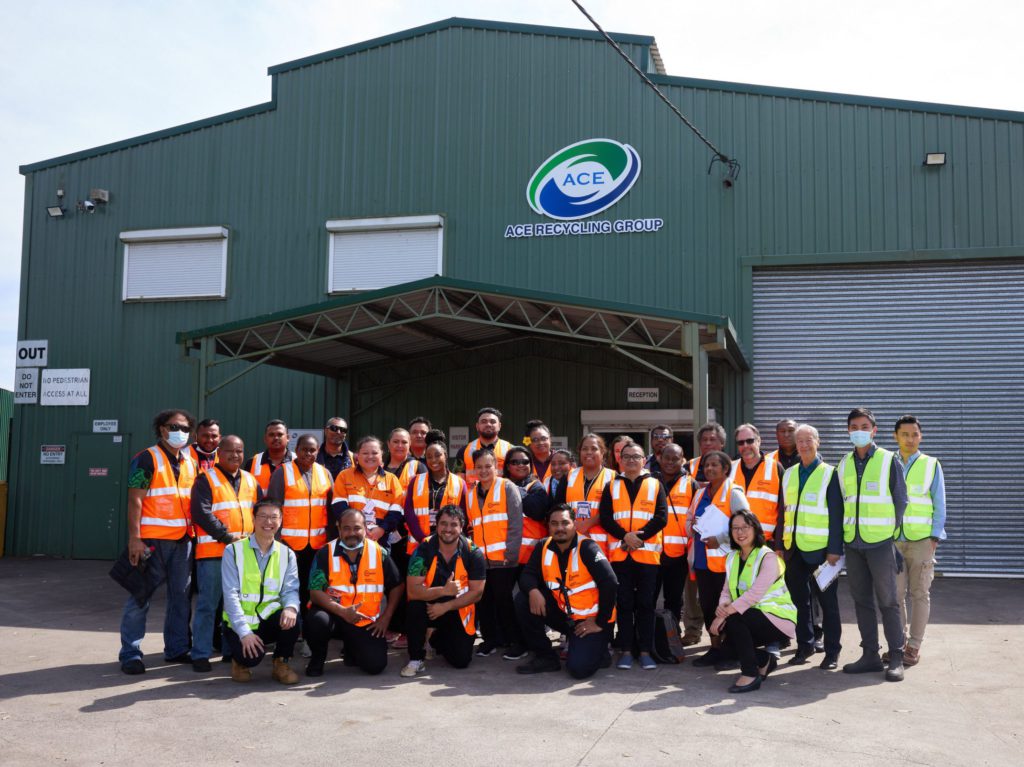
Vanuatu is currently redrafting their scheme design to reflect the learning it received on the study tour while Niue has commenced the design of the scheme for their country. The Solomon Islands has held its first stakeholder meeting on the design of a scheme, and the Ministry representative spoke with authority and conviction on the scheme design processes and has the industry on-side to design and deliver a positive scheme to recover problem waste items.
The study tour participating delegates are now advocates of change, and the life of every single Pacific Islander will be impacted by the resultant action these delegates take to improve resource management and environmental protection in their countries.
This study tour would not have been a success without the invaluable support provided by the many organisations and individuals in Australia and their generosity, hospitality and resources provided to the tour delegates.
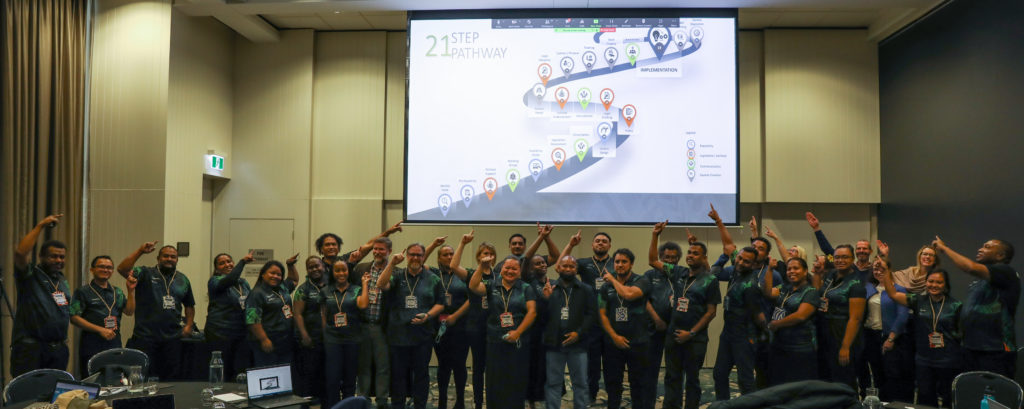
The programme also acknowledges our donors, the European Union, and the United Nations Environment Programme, for providing the necessary support to deliver this vital knowledge-sharing activity. While the study tour may have concluded but the work for the programme and the Pacific Island countries is just beginning.
The 22 participants in the study tour were from Cook Islands, Federated States of Micronesia, Fiji, Kiribati, Nauru, Niue, Palau, Papua New Guinea, Samoa, Solomon Islands, Timor-Leste, Tonga, Trinidad and Tobago, Tuvalu, and Vanuatu.
The programme encourages those that want to be part of this continued journey to join us at https://thegreenforum.org/group/265/stream or browse our website for updates and developments at https://pacwasteplus.org
Photos: GEF ISLANDS/PacWastePlus – Dr Kiara Worth

